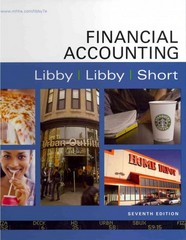Question
Bakerston Company is a manufacturing firm that uses job-order costing. The company's inventory balances at the beginning and end of the year were as follows:
Bakerston Company is a manufacturing firm that uses job-order costing. The company's inventory balances at the beginning and end of the year were as follows:
Balance
Beginning Balance
Ending Balance
Raw materials
$14,000
$22,000
Work in process
27,000
9,000
Finished goods
62,000
77,000
The company applies overhead to jobs using a predetermined overhead rate based on machine hours. At the beginning of the year, the company estimated that it would work 33,000 machine hours and incur $231,000 in manufacturing overhead cost. The following transactions were recorded for the year:
a.) Raw materials purchased: $315,000.
b.) Raw materials requisitioned for use in production: $307,000 ($281,000 direct and $26,000 indirect).
c.) The following employee costs were incurred:
Direct labour: $377,000
Indirect labour: $96,000
Administrative salaries: $172,000
d.) Selling costs: $147,000.
e.) Factory utility costs: $10,000.
f.) Depreciation for the year: $127,000, of which $120,000 is related to factory operations and $7,000 is related to selling and administrative activities.
g.) Manufacturing overhead was applied to jobs. The actual level of activity for the year was 34,000 machine hours.
h.) Sales for the year: $1,253,000.
Required:
a. schedule of cost of goods manufactured in good form.
b. Was the manufacturing overhead under- or overapplied? By how much?
c. income statement for the year in good form. The company closes out any under- or overapplied overhead to Cost of Goods Sold.
Step by Step Solution
There are 3 Steps involved in it
Step: 1

Get Instant Access to Expert-Tailored Solutions
See step-by-step solutions with expert insights and AI powered tools for academic success
Step: 2

Step: 3

Ace Your Homework with AI
Get the answers you need in no time with our AI-driven, step-by-step assistance
Get Started


